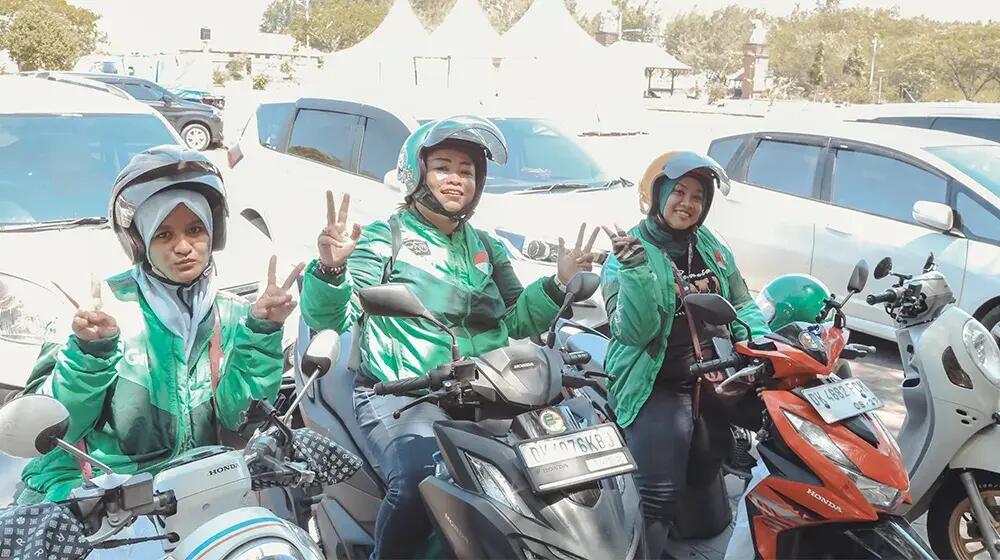In the bustling streets of Indonesia, the convenience of ride-hailing services has become a way of life. As of 2023, Indonesia boasts a staggering 21 million users of online transportation services, with Grab emerging as one of the leading platforms. However, a shadow has loomed over the industry – the rising cases of sexual violence. On the other side of the widespread usage and accessibility, unfortunately, is a number of reported cases of sexual harassment within the transportation network.
The phenomenon reflects the state of women’s safety in this world. One in four women aged 15-64 years old in Indonesia have experienced physical and/or sexual violence perpetrated by their partner or non-partner in her lifetime, accoding to Indonesian National Women’s Life Experience Survey (SPHPN) 2021.
In response, the United Nations Population Fund (UNFPA) partners with Grab Indonesia and the Ministry of Women’s Empowerment and Child Protection to prevent and address gender-based violence (GBV) through a public-private partnership programme for strengthening the mechanism and capacity of actors and institutions in prevention of sexual violence.
As part of the programme, UNFPA and Grab Indonesia have raised awareness among Grab drivers through the Safety Training for Grab Partners (PAKEM). The training, attended by over 500 Grab drivers in five cities - Jakarta, Bandung, Surabaya, Medan, and Denpasar--covered topics such as sexual violence prevention, reporting mechanisms, safe driving practices, as well as service excellence.
Following the training, the partnership will continue to combat GBV through:
- Knowledge exchange on best practices in reporting the GBV cases to the national GBV referral mechanism SAPA 129 and Grab;
- Targeted information, education, and communication (IEC) materials for Grab partners;
- Assistance to strengthen the case management system and referral processes of the Integrated Service Center for Women and Child Empowerment (UPTD PPA/P2TP2A) in Jakarta through the provision of Grab services; and
- A robust coordination mechanism for a safer future for women and girls.
PAKEM Training: Opening Eyes, Changing Minds
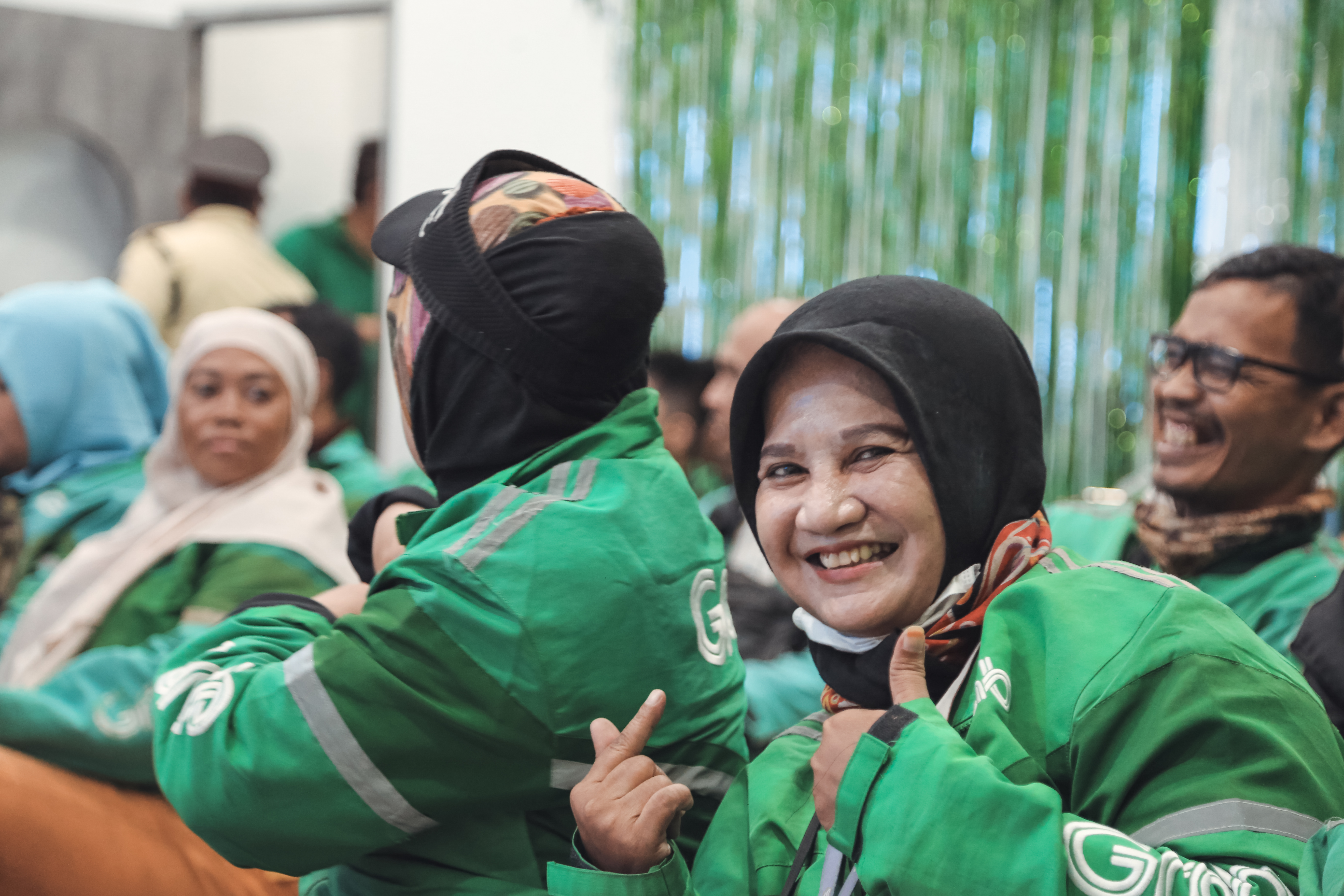
Melawati, a Grab driver from Medan, North Sumatra, shares her experience from the training. "I have been a Grab partner since 2019. I think the training is very interesting. Now, when unwanted things happen to me, I know what to do. I will also help share what I have learned with other fellow partners." Melawati's sentiments echoed across the diverse group of Grab partners who underwent the PAKEM training, shedding light on a crucial aspect of their profession.
Melawati also highlights the importance of the UU No. 12/2022 known as the Sexual Violence Crime Law (UU TPKS) that provides a legal umbrella for the prevention and response to sexual violence, and protection of victims and survivors. Her hope is that every Grab partner facing such situations will be more confident in reporting incidents to Grab or the authorities.
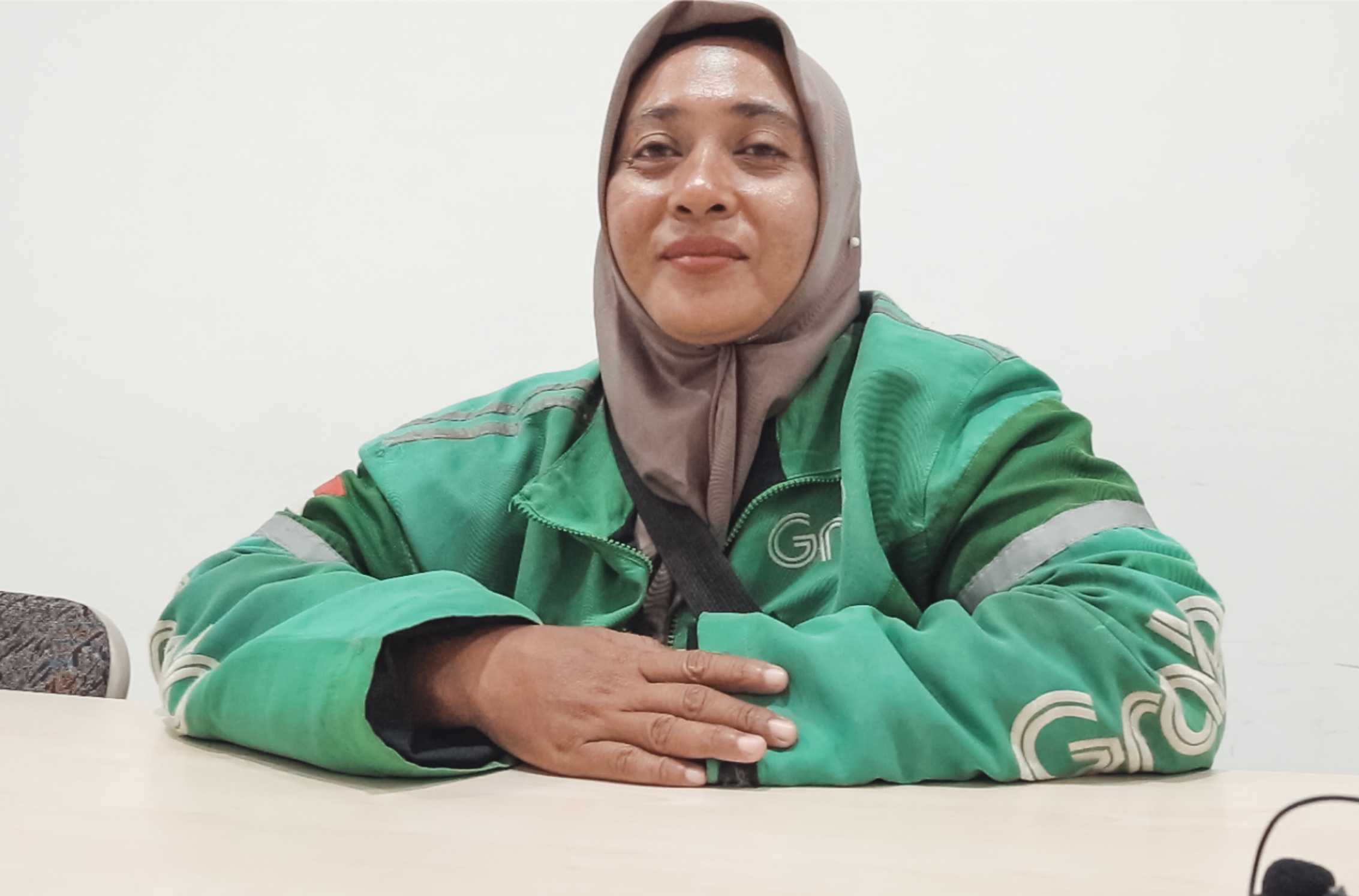
The impact of the training is evident among other Grab partners like Dewi Suryani from Medan, who expresses gratitude for the eye-opening experience. "For me, the training was very useful, and our minds became very open of various forms of sexual violence. We previously did not know that certain acts are in fact sexual violence."
The programme does not only educate drivers about sexual violence prevention, but also inform them about reporting mechanisms and relevant laws. "We can also help by reporting it, even though we were not the ones experiencing it," Dewi says.
Dewi, who has been a Grab partner in Medan for five years, believes that the knowledge gained has not only equipped her to protect herself but also to assist colleagues. She also highlights the importance of knowing where to report and the laws surrounding sexual violence. She plans on sharing stories not only with fellow Grab partners, but also close relatives and customers, emphasising the collective responsibility in preventing and reporting incidents.
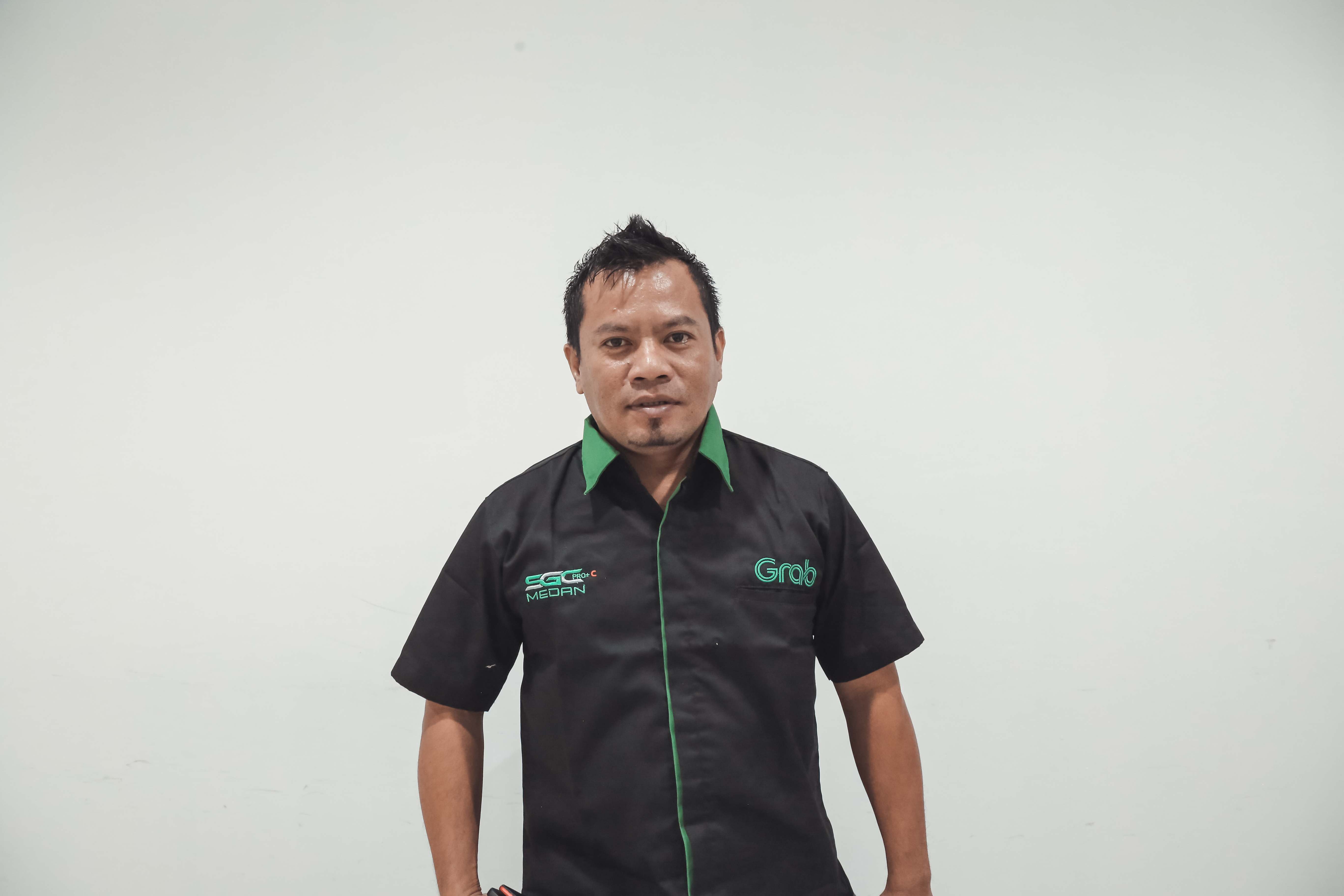
Male drivers like Antoni who has been a Grab driver in Medan since 2017 acknowledge the significance of understanding and preventing various forms of sexual violence. He reveals his own misconception about sexual violence and stresses the importance of recognizing different forms, including verbal abuse.
Antoni also shares his personal experience with sexual harassment and expresses the need for wider access to the training programme, advocating for its continuation. "In my opinion, this training is mandatory for all Grab partners because there are definitely many things that we didn't know until now."
From Awareness Raising to Driving Behavior Change
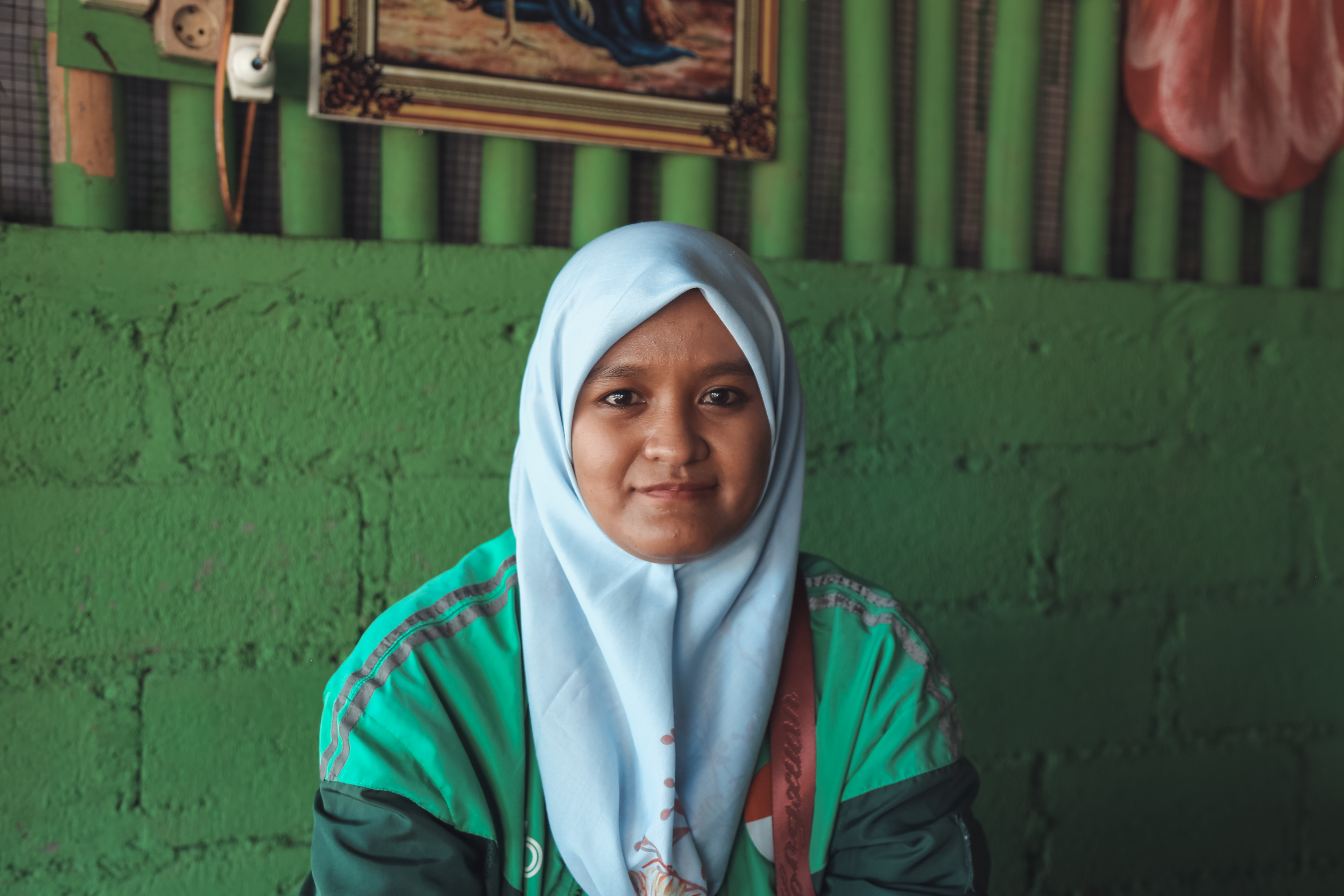
Damayanti, a new Grab driver in Bali since February 2023, values the flexibility of the job in balancing her work and childcare. She finds the sexual violence prevention training crucial for raising awareness and promoting responsible behavior and a safe space for all. Damayanti hopes the training encourages everyone to be more considerate in their actions and words, fostering a safer environment for all. Damayanti also mentiones that there has to be a shared commitment of both men and women in the fight against sexual violence and that it has to be a collective effort.
She also credits the training for boosting her confidence. "Now I feel braver, I am braver to speak out, and know where to report it when it happens," she declares. Damayanti's newfound courage echoes the transformative impact of the programme on individual drivers.
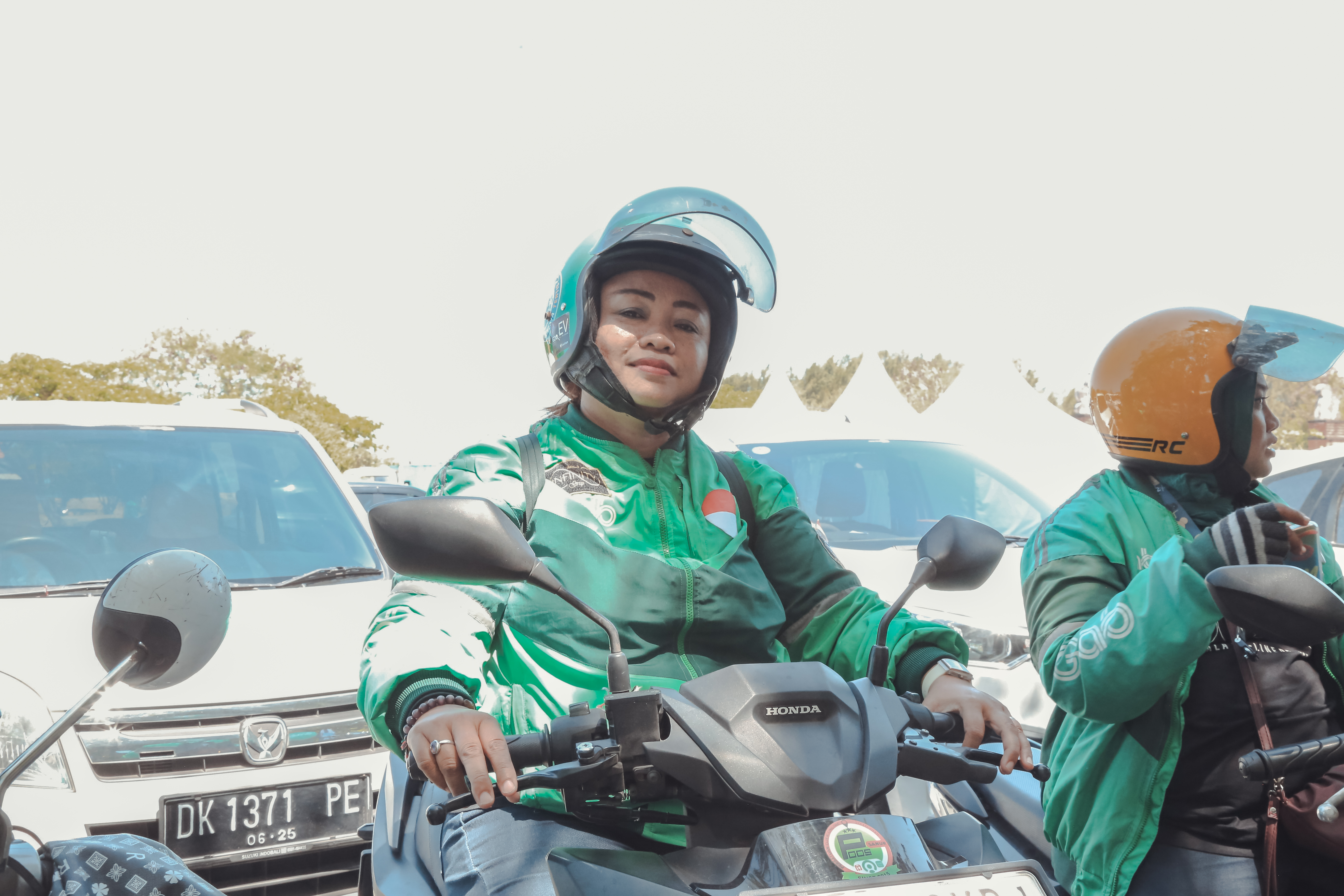
Dwi Sartika, also known as Made, a Grab driver for over three years in Bali, expresses gratitude for Grab's support during the challenging times of the COVID-19 pandemic, when she lost a lot of income as a guide in the famous tourist destination of Bali.
At the PAKEM training, she shared her experiences with sexual harassment and emphasised the importance of knowing reporting mechanisms and support services. Dwi encourages fellow drivers to be confident in reporting incidents, dispelling the fear of negative consequences.
“I myself have experienced sexual harassment several times but because I was afraid of my rating going down on the mobile application, I didn't report it. But now I have more confidence because I know I am protected and can report. What I only knew was that I could report to Grab. It turns out there are services that can also provide help, such as the Legal Aid Foundation of the Indonesian Women’s Association for Justice (LBH APIK) when I need legal assistance,” she says confidently.
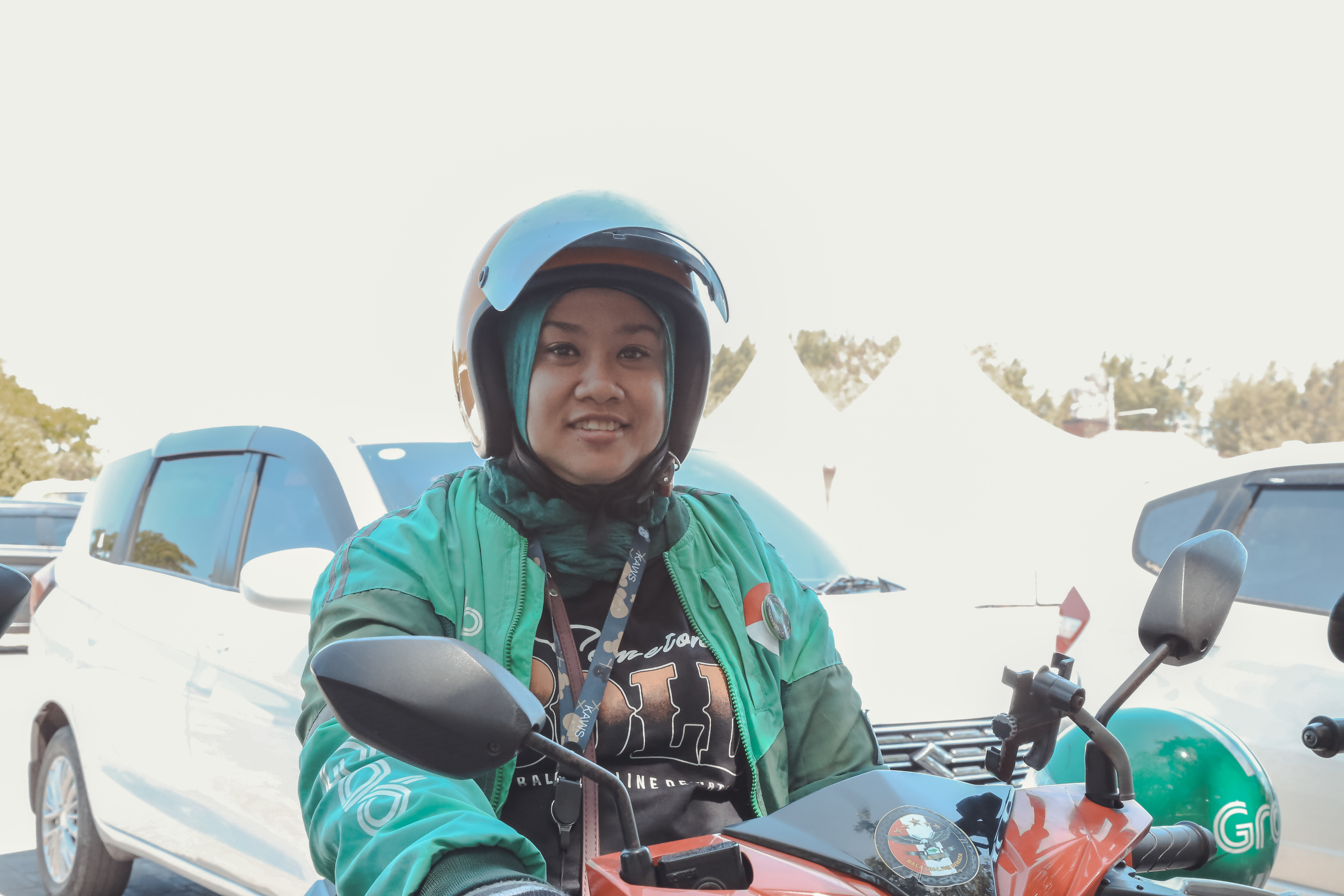
Nurul, a Grab driver in Bali for approximately one year, emphasises the significance of the training for women. "Now that we have received this training, we don't need to be afraid anymore, we are protected," she asserts. Nurul calls for more training sessions especially tailored for women who are more vulnerable to sexual violence, to foster a supportive environment for sharing stories and addressing complaints.
She is now more aware and confident in responding to sexual violence and highlights the importance of understanding the law and encourages fellow female Grab partners to report incidents without fear.
Drivers as Catalysts of Change
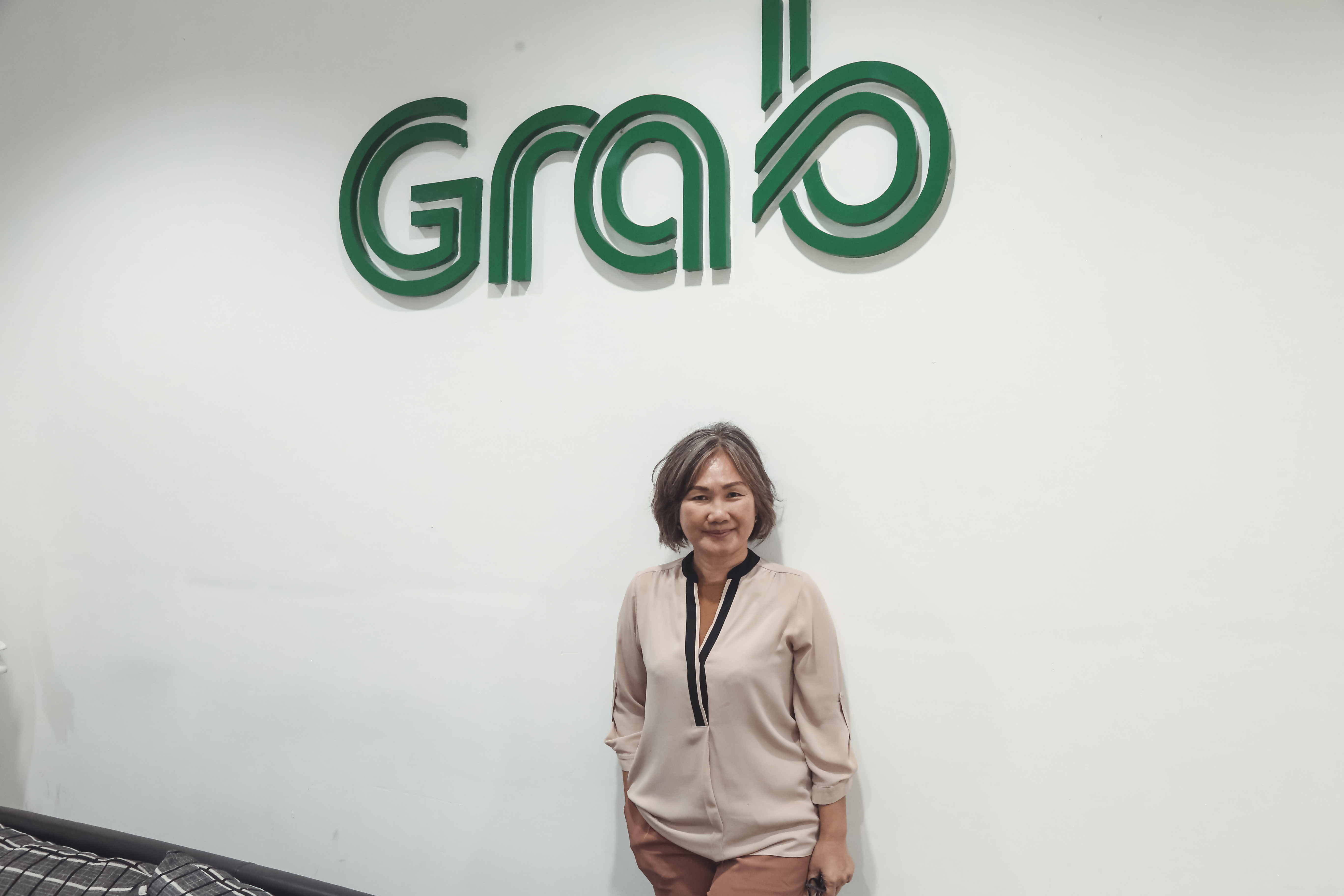
Meet Herlina, a dedicated Grab driver who has been weaving through Medan’s streets since 2016. Initially, driving was a part-time gig for her as she juggled another job. However, fate had other plans, and two years ago, Herlina found herself transitioning into a full-time Grab partner, driven by a noble cause – funding her child's college education.
In the course of her journey, Herlina participated in the PAKEM training that opened her eyes to the various aspects of sexual violence. What she once believed to be solely physical, she discovered, has far-reaching forms, including coercion related to sterilisation and marriage. "I thought that the concept of sexual violence was only physical, but it turns out it has very broad forms," she shares.
One fateful day, Herlina encountered a distressed passenger – a young girl who confided in her about a harrowing experience of rape. Overcoming her initial reluctance, Herlina provided a listening ear and, eventually, convinced her to seek help from the police. In doing so, she became a catalyst for change, breaking down the barriers of fear and shame that often shroud victims.
Inspired by her experience, Herlina began to share her newfound wisdom with fellow drivers during casual conversations.
Data has shown that misconceptions about sexual violence are pervasive, with some still wrongly blaming victims based on their appearance or behavior. Herlina emphasises the importance of adhering to Standard Operational Procedures (SOP) and treating all customers with respect and professionalism.
When supporting survivors of sexual violence, it is important to avoid re-victimization that can further harm them. This is where the PAKEM training fits with the bigger and noble mission of the partnership. During the training, Grab drivers were engaged into role plays in understanding the important roles they have to support victims of sexual violence, including through the core principles of victim-centered approach.
Believing that education is key to prevention, Herlina advocates for regular training sessions to reinforce the awareness of sexual violence among drivers. She understands that even those who have undergone training may need periodic reminders to stay vigilant and compassionate. Herlina’s conviction stems from the belief that sexual harassment can happen anywhere, and to anyone, regardless of their role as drivers or customers.
For Herlina, the underlying principle is clear: equality between men and women. She passionately asserts that respect is the cornerstone of people’s everyday lives, emphasising that both genders are equal and deserving of mutual respect. In her eyes, it's a fundamental truth: “We all come into this world through the nurturing hands of a woman, a fact that should inspire respect and deter anyone from resorting to violence,” she mentioned.
In the hustle and bustle of the city, Herlina’s story stands as a testament to the power of compassion, education, and advocacy. As she continues to navigate the streets as a Grab driver, Herlina is not just transporting passengers but driving change, one conversation at a time.
From the voices of Grab driver partners across Indonesia, a resounding message emerges: the fight against sexual violence is a collective effort, and equipping drivers with knowledge, awareness, and the confidence to combat and report incidents of sexual violence is the key to empowerment. As these drivers navigate the roads, they carry not only passengers, but also a newfound resilience and determination to create a safer, more respectful environment for all.
When you experience sexual violence, remember that you are not alone. There are people who are willing to support and help you. Call the numbers below if you need help.
Kementerian Pemberdayaan Perempuan & Perlindungan Anak:
08111-129-129/SAPA 129
Safenet & LBH Apik (for legal aid and consultation):
Instagram: @aduankorban.gh
Email: aduankorban.gh@awaskbgo.id
Yayasan Pulih (psychosocial support services):
08119436633/78842580
The Police: Unit Perlindungan Perempuan dan Anak (UPPA)
UPTD PPA/P2TP2A in every city/district in Indonesia
Lucky Putra
Media Assistant, UNFPA Indonesia

